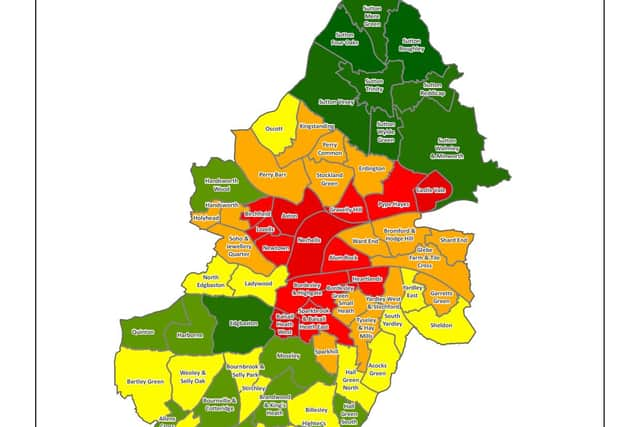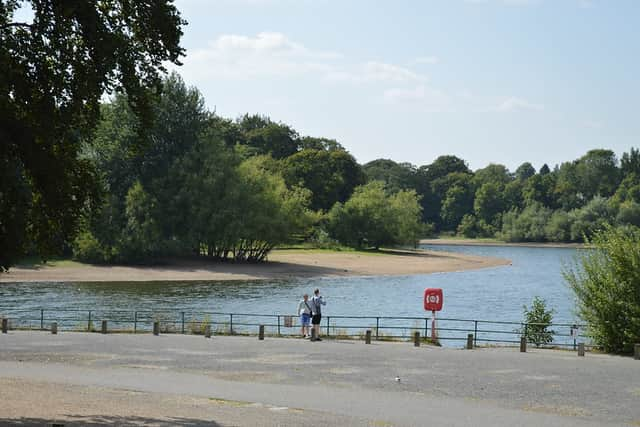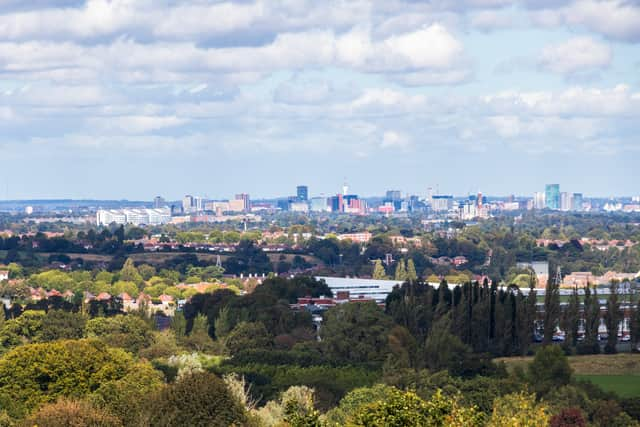Climate change in Birmingham: rates of global warming mapped across the city
This article contains affiliate links. We may earn a small commission on items purchased through this article, but that does not affect our editorial judgement.
and live on Freeview channel 276
Huge differences in the impact of climate change on public health and the environment in Birmingham have been mapped using new data.
It shows some city neighbourhoods are three-and-a-half times more at risk from factors including temperature rise, deprivation, access to green space and flooding.
Advertisement
Hide AdAdvertisement
Hide AdThe data examines includes the health of people as well as the environment.
The Environmental Justice Map shows the most at risk areas are currently Balsall Heath and Castle Vale which have been indexed as 0.43.
The neighbourhoods least at risk from climate change are Sutton Roughley and Sutton Four Oaks which have been indexed at 0.12.
You can see how your neighbourhood ranks in the Environmental Justice Map below.


Advertisement
Hide AdAdvertisement
Hide AdThe map has been produced by Birmingham City Council, it is believed to be the first of its kind in the UK with similar research underway in Berlin and the US.
The council has released the data as part of its City of Nature Plan which is intended to help fulfil the authority’s commitment to reach Net Zero by 2030. It includes plans to create 400 new parks and green spaces in the city over the next 25 years.
Will the council be looking to help the neighbourhoods most at risk first?
The council aims to focus in the first five years on Bordesley and Highgate, Balsall Heath West, Nechells, Gravelly Hill, Pype Hayes and Castle Vale.
Before drawing up the report the council said that it used YouGov polling to find out how people in these wards currently use parks.
Advertisement
Hide AdAdvertisement
Hide AdThey collected ‘Earth Stories’ from local residents and invited schools and community groups from six key wards to learn about the plan.
They said that over five years, improvements in the six wards should cost around £498,000 and this will be resiliently funded from the Community Infrastructure Levy and fundraising from the newly established Birmingham City of Nature Alliance.
Following on from this, it is expected that attention will be turned to Aston, Birchfield, Lozells, Alum Rock, Newtown, Bordesley Green and Sparkbrook and Balsall Heath East.
These areas have all been mapped red on the Environmental Justice Map.


Why is it so important to tackle climate change in Birmingham at this level?
Advertisement
Hide AdAdvertisement
Hide AdThe report cites the Marmot Review which establishes a link between the wider health determinants linked to local environments that affect quality of life and life expectancy.
To ensure environmental recovery the report recommends that new thresholds, which have been identified from research, are established in five areas of concern:
- The governance of the safety, cleanliness and sustainability of parks and waterways
- Making green spaces accessible to all residents to aid their health and wellbeing
- Making access to green jobs fairer to reflect the city’s diverse communities
- Educate residents to know, love and protect parks and waterways
- Develop commercial revenue and innovative funding that invests in nature.
The plan is due before the Cabinet on February 8 with the council warning that if it isn’t accepted then the city’s commitment to reaching its net-zero carbon target will be at risk.


What has the council said about the City of Nature plan in its own words?
Cabinet, Cabinet Member for Transport and Environment Cllr Waseem Zaffar said: “The City of Nature plan is trailblazing and together with Birmingham City Council’s Environmental Justice measure will set a new holistic standard for parks across the UK.
Advertisement
Hide AdAdvertisement
Hide Ad“Individual health and environmental health can no longer be separated and this plan has been developed by experts in many areas including public health.
“It is instrumental to creating a step change in city dwelling that will better prepare our city for the future changes in the climate and help to achieve the city’s net-zero by 2030 target.”
Discover more about the City of Nature Plan on the Birmingham City Council website.
A message from the editor:
Thank you for reading. BirminghamWorld is Birmingham’s latest news website, championing everything that is great about our city - reporting on news, lifestyle and sport. We want to start a community among our readers, so please follow us on Facebook,Twitter and Instagram, and keep the conversation going.
Comment Guidelines
National World encourages reader discussion on our stories. User feedback, insights and back-and-forth exchanges add a rich layer of context to reporting. Please review our Community Guidelines before commenting.
